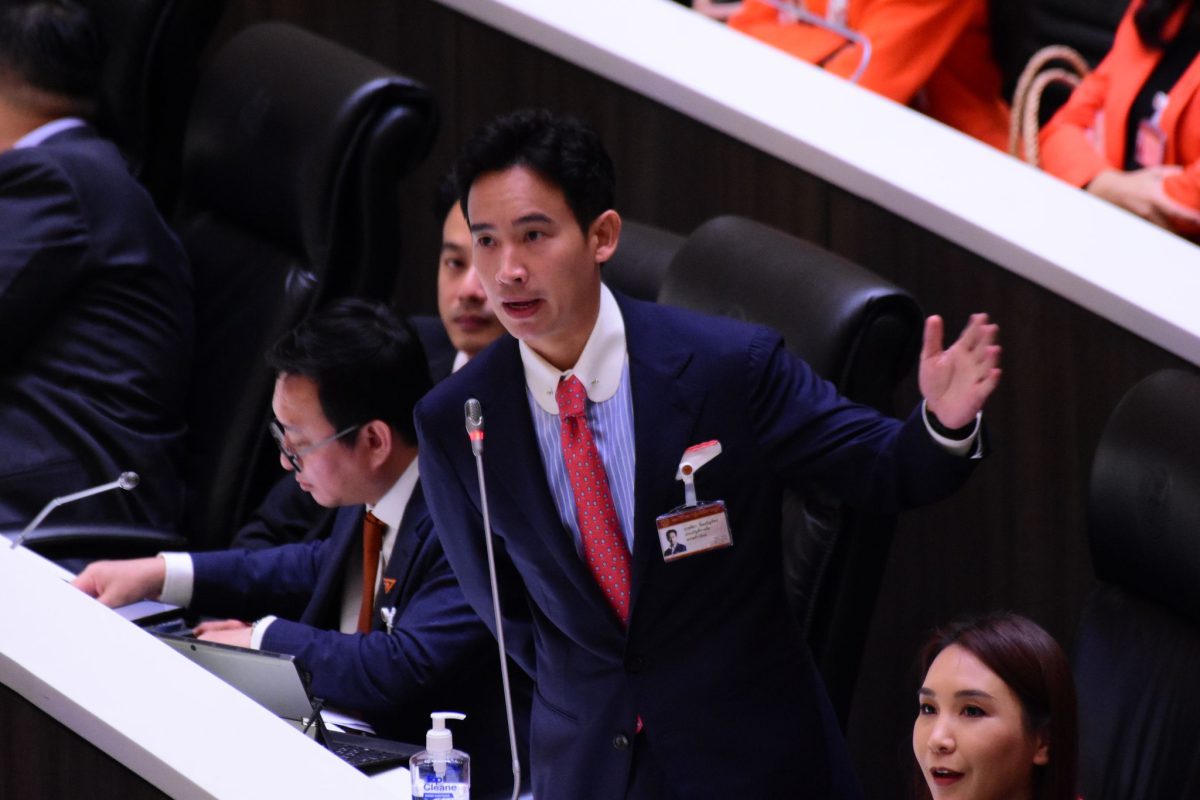By Phongsathon Tancharoen
The SOTUS system is a system that trains students through an intense and systematic mechanism. The moniker stands for five main beliefs: 1. S: Seniority, 2. O: Order, 3. T: Tradition, 4. U: Unity, and 5. S: Spirit.
In many of Thailand’s educational institutions or faculties, students and faculty members are often proud of their hazing traditions, whether it’s the SOTUS system or its Thai adaptations of senior students governing younger students (rabop phi pokkrong nong, rabop phi vinai).
At the beginning of every new semester of almost every university and some high schools, the system is used to welcome new students. The activities appear to be full of fun, with smiles and laughter between the senior and freshmen students. Shirts and headbands bearing faculty or school names are handed out and students often post photos of themselves and their friends during the SOTUS procedures on social media.
On the surface, these activities appear not to cause any harm. But what lies underneath the system is frustration, violence, stress, and anxiety between senior and freshmen students.
Not only is there an aspect of physical violence to the system that often leads senior students to physically harm and harass young students during these activities, but the SOTUS system also reflects a culture of deep-rooted authoritarianism. Freshmen are introduced to a system of seniority that teaches them to respect and obey the orders of senior students. It also teaches them that society outside the classroom is tough, and in order to survive, one must strive for unity in society.
The system basically advocates for relationships based on a patronage system that is all too common in many public and private organizations today in Thailand.
Those who have gone through the SOTUS system are tied to the belief that they need to help one another. It is fostered through the activities between senior and freshmen students, which create tight-knit relationships developed from the way in which senior students teach younger students and act as their supervisors, as well as tyrannizing them into following their orders and accepting the rules of the SOTUS system.
After an appropriate period following the hazing activities, freshmen receive permission to break certain rules that were once restricted, such as those related to hairstyles and dress codes, as well as gaining the authority to be in charge of new freshmen themselves.
The cycle of hazing rituals has continued to a point where it has developed into a relationship that is based on “classes” of students divided into ranks and assignment of duties for each person that continues the hazing tradition and keeps the SOTUS system alive. This promotes the creation of a hierarchy within the group, with senior students at the top of the pyramid.
There has also been the creation of a tradition which forces new students to conform to a set of practices, such as forcing them to wear uniforms and name tags, forcing them to dress in a similar way, or forcing them to get to know each other within a limited amount of time during the hazing period.
But the COVID-19 pandemic has proven to be a turning point for the SOTUS system because gatherings and social activities have been suspended
When there are no hazing activities, can the SOTUS system survive?

The SOTUS system contradicts the changing world order. Education was not created to teach people to walk in the same direction but to create the opportunities and wisdom needed for people to develop into citizens who are prepared to live their lives in society. The classroom is therefore a miniature society that exists within larger society.
In my opinion, learning should not be restricted by policies from the central government, and the SOTUS system and hazing activities should be scrapped. Students should be given the freedom to choose their own activities, such as voluntary ones that allow them to get to know each other. These activities should be based on free thought and free speech in order to encourage critical thinking that can spark creativity and new ideas to help move the country forward.
University and high school students are the real owners of the education system and we should no longer allow the central government or a certain group of people to decide our education for us.
This article was first published in Thai on May 28, 2020. Translated and edited by The Isaan Record.
Note: The views expressed on The Isaan Record website are the views of the authors. They do not represent the views of the organization, its editorial team or any of its partner organizations.




